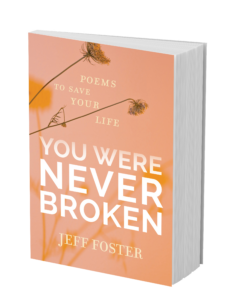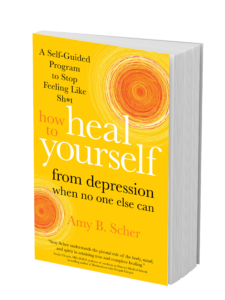Victory!
By Jeff Foster
You don’t have to be the best.
You don’t have to win.
You only have to be yourself.
You only have to be real.
And speak from the heart.
And know that you have the right to see how you see,
and think how you think, and feel what you feel,
and desire what you desire.
You don’t have to be a success in the eyes of the world
and you don’t have to be an expert on living.
You only have to offer what you offer,
breathe how you breathe, make mistakes and screw
up
and learn to love your stumbling and say the
wrong thing
and stop worrying so much about impressing anyone
because in the end you only have to live with yourself
and joy is not given but found in the deepest
recesses of your being
so there can be joy in falling and joy in making
mistakes
and joy in making a fool of yourself and joy in
forgetting joy
and then holding yourself close as you crumble to
the ground
and weep out the old dreams.
Joy is closeness
with the one you love:
You.
You don’t have to be the best.
You really don’t have to win.
You only have to remember this intimacy with
the sky, the nearness of the mountains and feel the sun
warming your shoulders and the nape of your neck
and know that you are alive,
and that you are a success at being alive,
and that you have won already,
and you are victorious already,
without having to prove
a damn
thing.
To anyone.
This poem is excerpted from You Were Never Broken: Poems to Save Your Life by Jeff Foster.
 Jeff Foster shares from his own awakened experience a way out of seeking fulfillment in the future and into the acceptance of “all this, here and now.” He studied astrophysics at Cambridge University. Following a period of depression and physical illness, he embarked on an intensive spiritual search that came to an end with the discovery that life itself was what he had always been seeking.
Jeff Foster shares from his own awakened experience a way out of seeking fulfillment in the future and into the acceptance of “all this, here and now.” He studied astrophysics at Cambridge University. Following a period of depression and physical illness, he embarked on an intensive spiritual search that came to an end with the discovery that life itself was what he had always been seeking.

Learn More
Sounds True | Amazon | Barnes & Noble | Bookshop



 Amy B. Scher
Amy B. Scher 


 Jeff Foster
Jeff Foster
